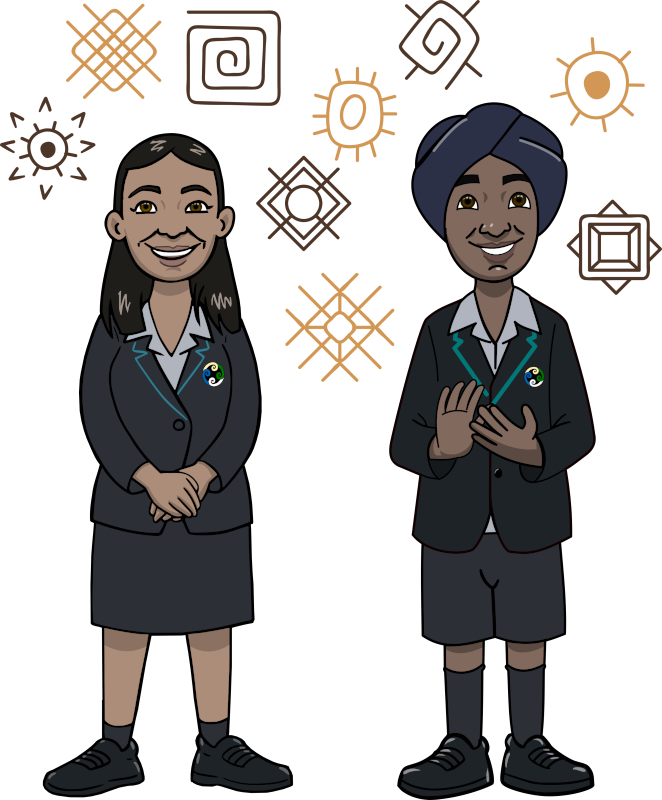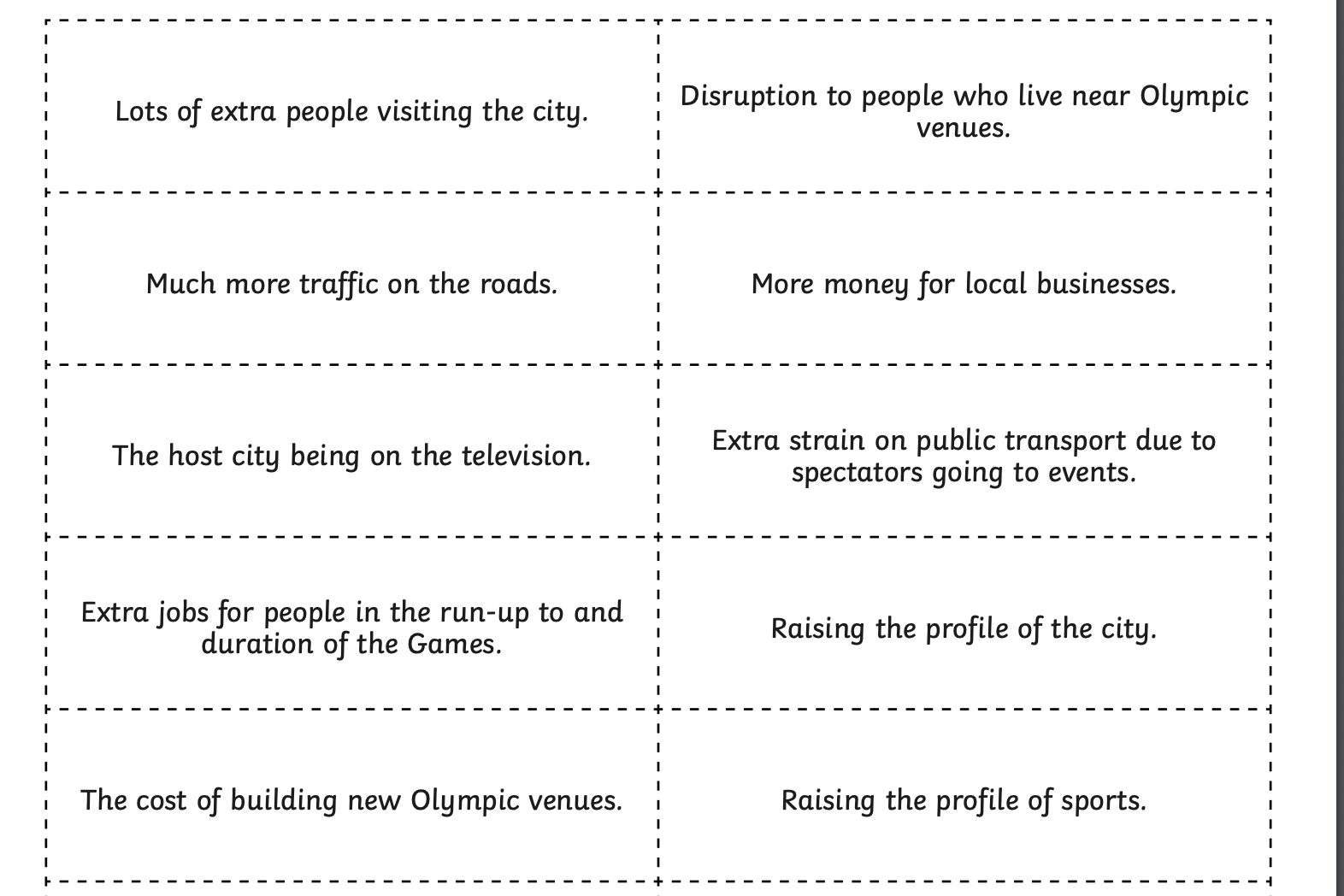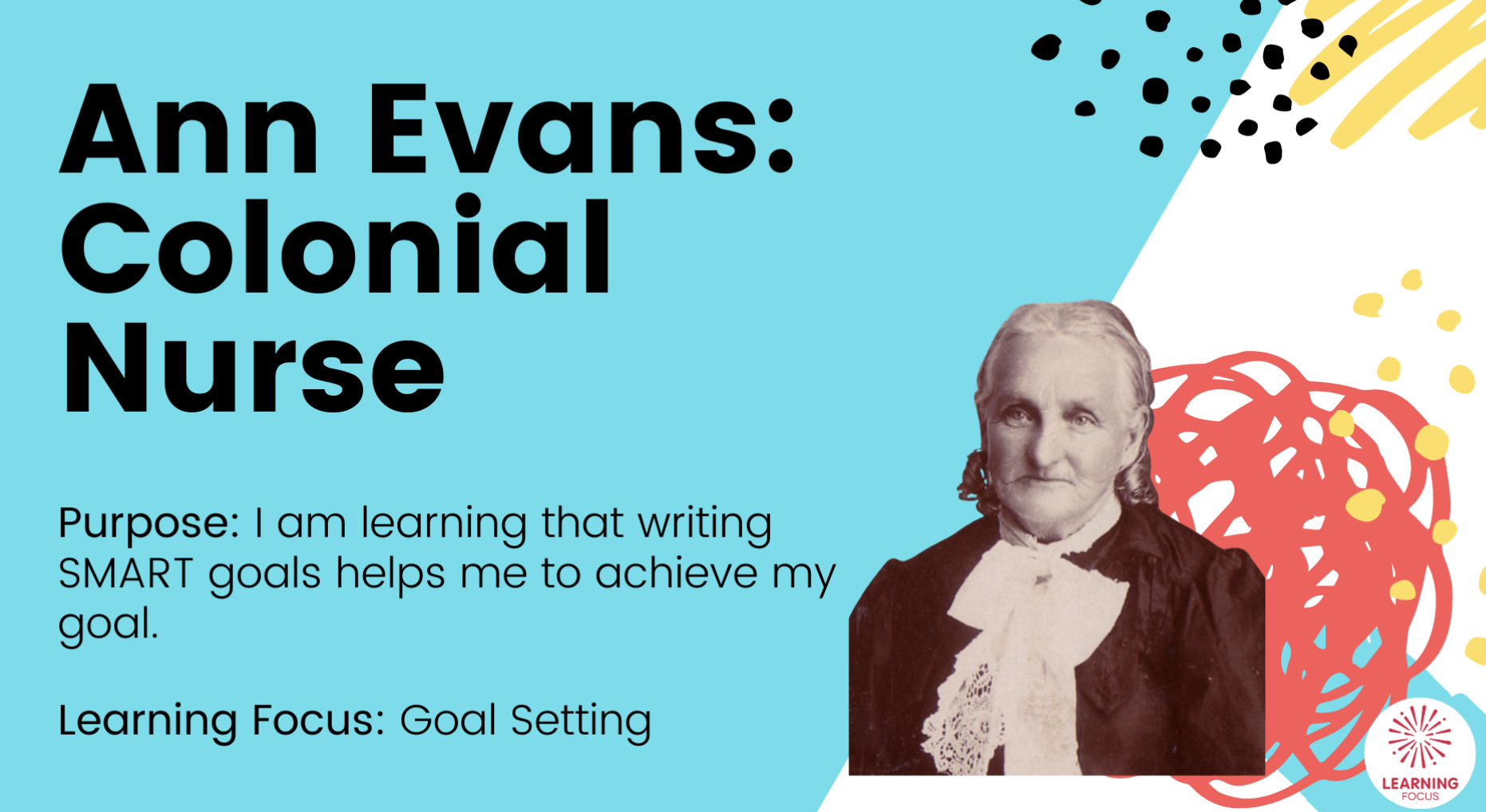8C1 Global Studies
Section outline
-
Nau mai, haere mai 8C1
Welcome to your Global Studies class for 2024.
Mā te tāngata i te waka
Haere haumaru ki takutai
Hei tūhura ki te ao tūroa
(When the people and the waka
arrive safely to the shores,
they will be ready to explore the world)
Welcome to a new academic year filled with possibilities, growth, and exciting challenges! As you embark on this journey, remember that each day is an opportunity to learn, explore, and discover your incredible potential.
Embrace every challenge with courage, for it is through challenges that we learn, grow, and become stronger individuals. Approach your studies with curiosity and enthusiasm, knowing that each lesson is a step toward your personal and academic success.
You are capable of achieving greatness, and your unique talents contribute to the vibrant tapestry of our learning community. Believe in yourself, stay focused on your goals, and never underestimate the impact of your efforts.
Ka kite ano
Mrs M Naidoo
-
Opened: Saturday, 22 June 2024, 12:00 AMDue: Thursday, 23 June 2044, 12:00 AM
-
-
Kia ora whanau,
Nau mai, haere mai! I hope you all enjoyed a relaxing and restful break.Have you ever wondered about the giant stadiums, the dazzling lights, and the roar of the crowd at the Olympics? It's not just about the athletes! Today, we're starting a journey to explore the hinengaro ohaoha (economic thinking) behind this massive global event.
Get ready to whakarongo mai (listen up!) and whakaarohia (think about) how countries make choices and use resources to participate in the Olympics. We'll be like kaitiaki māpō (map detectives) using maps to track the Olympics around the world. We'll even whakatau (decide) how countries can work together for a sustainable future!
So, buckle up and get ready to discover the fascinating economic world of the Olympics!
Mrs M NaidooIn our first week we will be diving into:
The Summer Olympics - A Scavenger Hunt
Through this scavenger hunt activity and close reading passage, you will be able to:
Whariki (Explore):
- The history and traditions of the Summer Olympic Games.
- The different events and competitions that take place at the Summer Olympics.
- The selection process and responsibilities of the host country.
Whakaaro (Think about):
- The significance of the Olympic symbols and mottos.
- The challenges and benefits of hosting the Summer Olympics.
- The impact of the Olympics on culture, sport, and global connections.
Whakautu (Answer):
- Questions based on a factual passage about the Summer Olympic Games.
- Use clues within the passage to find specific information about traditions, events, and the host country.
Whakaatu (Show):
- Your understanding by completing the scavenger hunt puzzle using details from the passage.
- Effectively work together in a team to locate information and solve the puzzle.
-
FOCUS / ARONGA learning intentions:
- We are FOCUSING on using basic map skills to understand where the Olympics are held throughout the world.
Awhinatanga: Positive Partnerships

Awhinatanga: Culturally Connected

Wänanga: The 5 Cs
Learning Intentions
Students will understand the concept of latitude and longitude.
Students will be able to locate places on a map using latitude and longitude coordinates.
Students will be able to interpret and analyse information presented on maps.
Students will develop an understanding of geographical location and distribution of Olympic host cities.
Students will analyse patterns and trends in Olympic host city selection.
Students will use map skills to locate and identify different countries and continents.
I can explain the difference between latitude and longitude.
I can identify the prime meridian and the equator on a map.
I can locate places on a map using latitude and longitude coordinates.
I can use grid references to find specific locations on a map.
Whakaatuhia ngā whenua manaaki Olimipeka (Identify Olympic host cities): Accurately locate and label Olympic host cities on a world map.
-
EXPLORE / TŪHURA learning intentions:
- We are EXPLORING the economic benefits and challenges for a city hosting the Olympics.
Awhinatanga: Culturally Connected

Wänanga: The 5 Cs
Wänanga: GREAT Ako

- I can compare the economic benefits and challenges of hosting the Olympics.
- I can form a reasoned judgment about whether hosting the Olympics is a good economic decision for a city.

-
EXPLORE / TŪHURA learning intentions:
- We are EXPLORING basic map skills to understand where the Olympics are held throughout the world.
Awhinatanga: Culturally Connected

Wänanga: The 5 Cs
Wänanga: GREAT Ako

Learning Intention : Understand the purpose of sketch mapping.
- Success Criteria:
- I can explain what a sketch map is and its purpose.
- I can identify the key elements of a sketch map (title, legend, scale, north arrow).
Learning Intention : Develop skills in creating accurate sketch maps.
- Success Criteria:
- I can accurately represent the location of features on a sketch map.
- I can use appropriate symbols and labels to represent features.
- I can estimate distances and directions to create a scale for my map.

-
Kia ora whānau, and welcome to Assessment Week!
This week, we'll delve into research-driven assessments focused on the impact of the Olympic Games. We'll explore how this global event influences problem-solving, energy consumption, economic growth, and the world of sports. Our focus will be on the specific effects experienced by host cities.
-
Opened: Monday, 19 August 2024, 12:00 AMDue: Sunday, 26 August 2029, 12:00 AM
-
-
Kia ora whānau,
We will continue our assessment on researching the impact of hosting the Olympics on a city. In class, we will begin creating and perfecting our presentations.
-
Kia ora whanau
This week we will be working on completing our one on one conversations to assess our Research project. Whilst I am working with a student, you will be completing your assigned Education Perfect tasks.
This is the rubric we will be using for the assessment.
Criteria
Working TOWARDS
Working AT
Working ABOVE
Working BEYOND
Reliable sources
You can identify criteria from a source that indicates reliability
You can use criteria from a source to select reliable sources
You can accurately use criteria from a source to select reliable sources
You can accurately use criteria from a source to select several reliable sources
Gathering of relevant information/
evidence
You have gathered some relevant information from a source provided to you and presented this in your own words.
You have gathered relevant information from a source provided to you and presented this in your own words.
You have gathered relevant information from a self identified source and presented this in your own words.
You have gathered relevant information from a range of self identified sources and presented this in your own words.
Bibliography
You have listed the sources you used
You have listed the all sources you used
You have attempted to provided bibliography information
You have provided bibliography information and attempted to format it
Accuracy in Writing
You have made errors in grammar, spelling and/or punctuation and these are intrusive at times, consequently the reader has to infer meaning
You have made some errors, but minimal reader inference is needed as meaning is mostly clear
You have carefully edited your writing to ensure you have few intrusive errors and meaning is consistently clear
You have carefully edited your writing to ensure you have no intrusive errors and meaning is consistently clear
Overall Grade
Working TOWARDS
Working AT
Working ABOVE
Working BEYOND
-
Kia ora whānau,
To celebrate Te Wiki o te Reo Māori, we'll be delving deeper into whakautauki, Māori proverbs. We'll design a display featuring our chosen proverb and explain its significance. Let's embrace this opportunity to learn more about our language and culture!
-
Kia ora whānau,
To celebrate Te Wiki o te Reo Māori, we'll be delving deeper into whakautauki, Māori proverbs. We'll design a display featuring our chosen proverb and explain its significance. Let's embrace this opportunity to learn more about our language and culture!
-
Learning Intentions
- Students will be able to analyse the impact of cultural exchange and cooperation on global communities.
- Students will be able to evaluate the role of sports in promoting understanding and respect among different cultures.
- Students will be able to identify and discuss the core values of the Olympic Games.
Success Criteria
- Students can explain how the Olympic Games foster cultural exchange and cooperation.
- Students can evaluate the positive and negative impacts of sports on global relations.
- Students can identify and describe the Olympic values of friendship, respect, excellence, equality, and fair play.
- Students can analyse how these values are demonstrated in real-world examples, such as the comic strip.
- Students can create their own examples of how these values can be applied in their own lives and communities.
Create a comic strip based on the Olympic values of friendship, respect, excellence, equality, and fair play. The comic should tell a story that illustrates these values in a relatable and engaging way. For example, you could depict a young athlete overcoming challenges to achieve their goals or a team working together to support a teammate.
Here are some additional ideas:
- Friendship: Show athletes from different countries becoming friends and supporting each other.
- Respect: Depict athletes showing respect for their opponents, coaches, and officials.
- Excellence: Illustrate athletes striving for their best and celebrating their achievements.
- Equality: Show athletes of all backgrounds competing on a level playing field.
- Fair Play: Depict athletes playing by the rules and respecting the spirit of competition.
-
E ora, e hoa ma!
Welcome back to our final term of the year. I hope you all had a restful and rejuvenating break. As we embark on this final stretch of our learning journey, this term our context of learning is Shining Through Celebrations.
This term, we will explore the beauty and significance of cultural celebrations from around the world. We will discover how these celebrations can bring people together, preserve traditions, and inspire us to be our best selves.
Together, let's whiwhi (gather) knowledge, whakarongo (listen) to different perspectives, and whakaatu (show) our appreciation for the rich tapestry of cultures that make up our world.
Let's make this term one to remember! Kia kaha, kia maia, kia manawanui! (Be strong, be courageous, be patient!)
Mrs Naidoo
-
Learning Intentions
- Understand the historical and cultural significance of diverse celebrations.
- Research effectively using various sources.
- Communicate ideas clearly and persuasively in both written and oral forms.
- Appreciate and respect cultural differences and similarities.
Success Criteria
- Identify and describe different cultural celebrations from around the world.
- Analyze the historical context and cultural significance of these celebrations.
- Present information clearly and effectively in both written and oral forms.
- Appreciate and respect cultural diversity.
-
Kia ora Year 8s,
This week, we'll start by practicing our presentations on our chosen celebration.
Due to the long weekend and Athletics Day, we'll have a shorter week. We'll continue working on the class presentations this week and next week
-
Our presentations are due this week.
Its going to be a great week learning about new celebrations from around the world.
-
This week we will use our lessons to listen to the presentations we have been working on.
Remember to go over your checklist for the presentation requirements:
The history and origin of the celebration:
When and where did the celebration begin?
Choose one
What are its historical roots or religious connections?
Choose one
The cultural significance and meaning:
What does the celebration symbolise or represent?
Choose one
How does it reflect the values and beliefs of the culture?
Choose one
Key traditions and customs
What are the main activities or rituals associated with the celebration?
Choose one
Are there any specific symbols or objects used?
Choose one
Any unique foods, music, or art associated with the celebration:
Are there any special dishes or drinks traditionally consumed during the celebration?
Choose one
What kind of music is played or sung?
Choose one
Are there any unique forms of art or crafts associated with the celebration?
Choose one
-
Learning Intentions
- We are exploring the concept of SMART goals and how to set effective goals for ourselves.
- We are analysing the life of Ann Evans to identify qualities such as perseverance, resilience, and determination.
- We are applying these qualities to our own goal-setting process to create ambitious yet achievable goals.
Success Criteria
- Understand the components of a SMART goal (Specific, Measurable, Achievable, Relevant, Time-bound).
- Identify key qualities of Ann Evans that demonstrate perseverance and resilience.
- Set personal SMART goals that are challenging but achievable.
- Justify goal choices by explaining how they align with personal interests and aspirations.
- Create a detailed action plan outlining the steps needed to achieve each goal.
- Evaluate the effectiveness of SMART goals and make adjustments as needed.

-
Christmas is a significant holiday celebrated by many people around the world. It commemorates the birth of Jesus Christ and is a time for family, friends, and community to come together. Christmas is often associated with traditions like decorating Christmas trees, exchanging gifts, singing carols, and attending church services. It's a time of reflection, gratitude, and spreading goodwill.
Learning Intentions
- We are exploring the cultural significance of Christmas and its various traditions.
- We are developing our understanding of the symbolic meanings behind Christmas symbols and rituals.
- We are practicing our reading comprehension skills through a scavenger hunt activity.
Success Criteria
- Identify key details about the history and traditions of Christmas.
- Understand the symbolic meanings of Christmas symbols, such as the Christmas tree, mistletoe, and Santa Claus.
- Apply reading comprehension strategies to locate specific information within the text.
- Complete the scavenger hunt activity accurately and efficiently.
- Reflect on the cultural and personal significance of Christmas.
